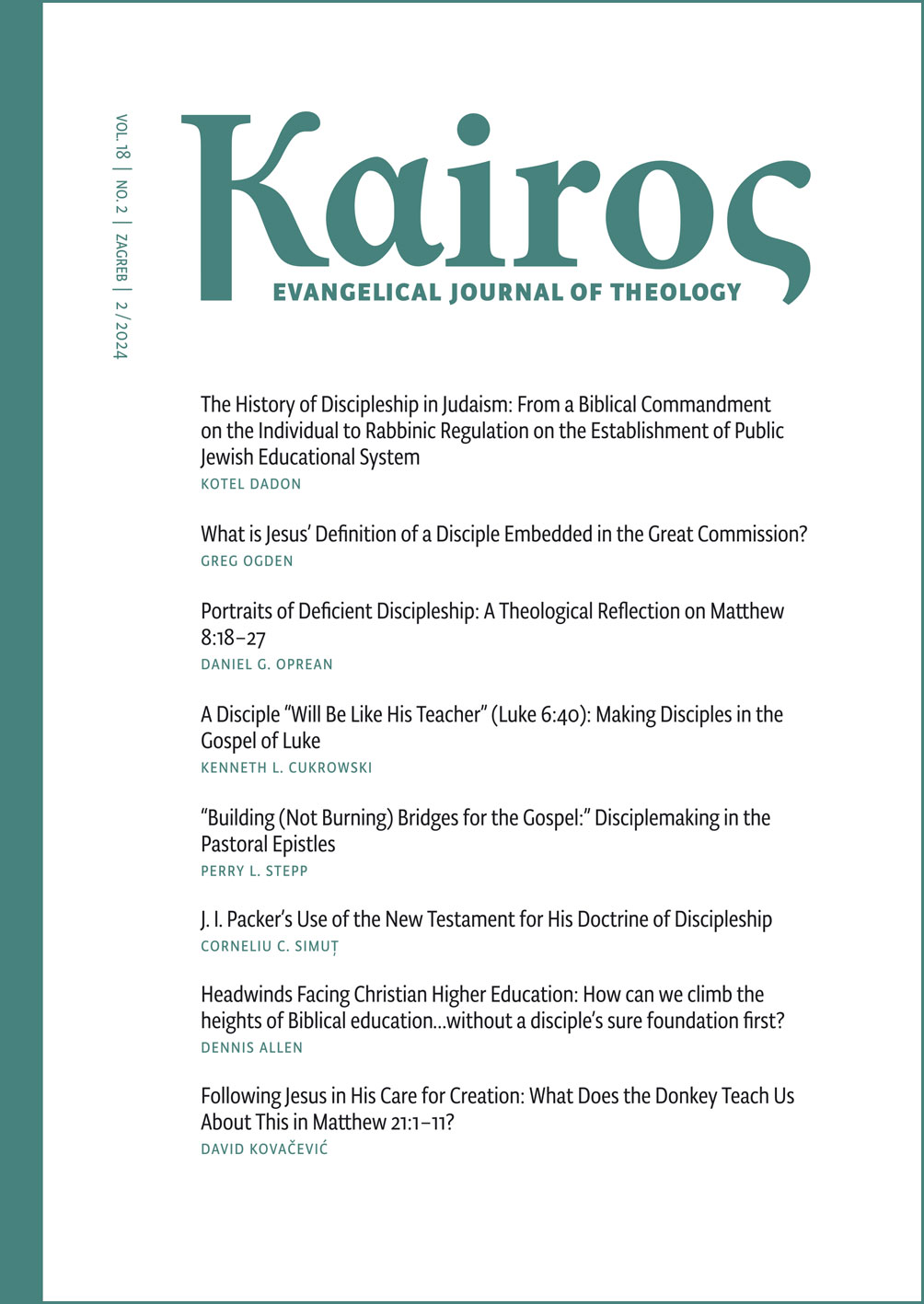What is Jesus’ Definition of a Disciple Embedded in the Great Commission?
DOI:
https://doi.org/10.32862/k.18.2.2Keywords:
non-discipleship gospel; Christian vs. disciple; going; baptizing; teachingAbstract
Any conference on discipleship must be rooted in the biblical definition of a disciple. When Jesus commands us to “make disciples,” who or what exactly are we making? What does a disciple look like? We need to look no further than the definition embedded in Jesus’ original mandate known as the Great Commission (Matt 28:16-20). There is a precise structure to this text which gives us the basic characteristics of a disciple. We find here a singular imperative, “make disciples.” What is often overlooked is that this central command is modified by three participles, “going,” “baptizing,” and “teaching.” Participles are verbal adjectives (descriptive images) ending in “ing” that describe the nature of a disciple. In this presentation, I will contrast the popular definition of a Christian with the biblical definition of a disciple. Christians, as commonly understood, are those who have trusted Christ for their salvation and believe that they will be with Jesus when they die. In other words, we have, perhaps unwittingly said, “You can be Christian without being a disciple.” The “gospel” we have been proclaiming has led directly to a non-discipleship or “forgiveness only” gospel. Bill Hull and Ben Sobels assert two truths: 1. You cannot make a Christlike disciple from a non-discipleship gospel. 2. The gospel you preach determines the disciples you make. In contrast, I will note that the three descriptive participles of “going,” “baptizing,” and “teaching,” when fleshed out, contain within them Jesus’ definition of a disciple. This is further underscored by the gospel Jesus proclaimed as recorded in Mark’s gospel at the inception of Jesus’ ministry: “Now after John was arrested, Jesus came into Galilee, proclaiming the gospel of God, and saying, ‘The time is fulfilled, and the kingdom of God is at hand, repent and believe in the gospel’” (Mk 1:14-15).
Published
Issue
Section
License
Copyright (c) 2024 Kairos : Evangelical Journal of Theology

This work is licensed under a Creative Commons Attribution 4.0 International License.





